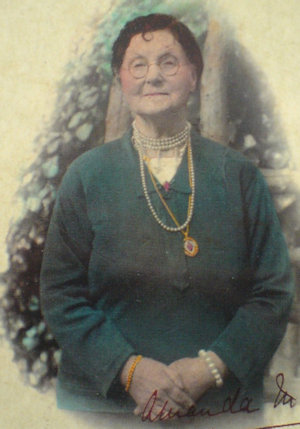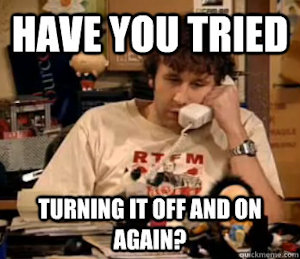Writing Your Novel: Editing
 | | It's going to get messy |
When it comes to your novel, if someone tells you the hard part is the writing, you have all the moral justification you need to punch them in the eye socket. While it is true that actually getting to the final page of your first draft can feel like a daunting, nigh impossible challenge, it is merely the first leg of the increasingly difficult triathalon of writing, editing, and publishing. Today, we're going to discuss the second leg, easily the most painful and ego-shattering part of the process: the editing.
If you like to think of your novel as a child you have created, then editing is like being forced to conduct extensive surgery on your newborn kid until he is barely recognizable from his original form. Whether you start with a scalpel or a power drill, you cannot be afraid to get in there, rip out and replace whole sections, examine the innards one-by-one in a tedious, time-consuming ritual that will hurt you far more than it will hurt your patient, get second and third opinions on everything you're doing, and then, once you've sown the thing back together, be ever ready to rip it back open again at a moment's notice. There is nothing easy about this. If you find editing easier than writing, then you are doing at least one of them wrong.
 | | Behold the Tommy Wiseau of the late Nineteenth Century |
So let's say you just finished your first draft, and like a proud parent, you boldly proclaim there's nothing wrong with the spawn of your labors. You love it, no matter what anyone tells you, and if there are flaws, they're like beauty marks, little imperfections that only reinforce its perfection. The first thing you need to do is realize how horribly wrong you are. Your child is an ugly, mutated little bastard on life support that wouldn't survive more than a day without constant, intensive care. Know that you are not the greatest writer who ever lived, nor are you simply misunderstood. Amanda McKittrick Ros, with her fruit-based nomenclature and excessive alliteration, is often credited as the worst novelist who ever got published, and she thought she was a genius that future generations would revere.
Many of us edit as we go, which can be fine unless it keeps you from making any forward progress (in which case, you should force yourself to stop doing it). However, this is not a substitute for editing en masse after completing your first draft. If anything, it's just a tiny head start. This is because a first draft is always--always--full of inconsistencies, awkward writing, unwanted tonal shifts, weird character moments, unwieldy plot contrivances, and much more. It doesn't matter who you are, either. Even Stephen Friggin King edits the living crap out of his novels. (His single best recommendation: read your manuscript out loud.)
The biggest problems are different for each writer, so I'll use my own writing as an example. For me, the biggest problems I tend to have include expository paragraphs that become more about proselytizing a viewpoint than driving a narrative, characters whose motivations are inconsistent, sentences that sound perfectly fine in my head but are a chore for anyone else to decipher, and wandering P.O.V. that can shift mid-sentence. Your problems may be completely different from mine, and unfortunately, the only way to learn what your problems are is to show your unfinished work to someone else.
 | | You need someone unafraid to make you cry |
New writers tend to hate criticism, because it can hurt the ego, even for modest, realistic types who don't have an inflated sense of their own talents. You need to embrace criticism, though. You may start by showing your work to friends and family who will be polite and not get too critical with your work. They'll read whole sections, and rather than make detailed notes in the margins outlining all your grammatical mistakes and incomprehensible garbage, they'll offer a quaint little, "It's good," or, "I liked it," as they hand it back to you, clean and unmarked. This is not helpful, and you should tell them as much.
I pushed my own boundaries last year by passing off a big chunk of my current novel-in-the-works to my father-in-law, who is an English professor. I even gave him a red pen to go along with it, and I encouraged him to be as brutal as he wanted to be. When he gave it back to me a few months later, it was indeed filled with red, and I couldn't have been happier. Sure, going through all his notes was difficult and at times infuriating, but I can't deny it helped. (Despite all that, I still suspect he held back a bit.) If you have an English professor in your life, I say go for it, but maybe not as your first editor. It's not for the faint of heart.
 | | If only |
Absent that, you should certainly consider a professional editor. It can be tricky to find one if you don't know how to look, because the term "editor" has become so broad as to be all but meaningless in the publishing business. Try looking for "freelance copy editors" who work specifically on books. This is still tricky, because if you just Google "copy editor," you're likely to get more hits about newspaper and magazine jobs than what you're looking for. However, even after you finally track one down, know that you might not mesh with your editor. The relationship between a writer and an editor is complicated, and like trying to find a good therapist that suits your idiosyncratic needs, you may have to try out quite a few before settling on one you can work with. Also, expect it to be expensive. A cent a word may not sound like much, but trust me, it adds up, especially if you're poor (and as a writer, you probably are).
Ultimately, expect to spend quite a bit more time editing than you did actually writing, and expect it to be significantly less enjoyable. Know that you'll be forced to rethink practically every single word of your original manuscript, and you may wind up rewriting whole sections of it. You will have to sacrifice things you love (one of my mentors refered to this as "killing your babies"); you will have to rethink major characters, even your main one(s); and you might have to make sweeping changes to something that seems minor but forces you to go through the entire novel looking for unexpected ways the changes interfere.
But chin up. At the end of this process, you'll have a much better novel. It may bare little resemblance to the first draft, but it will be a far superior final product, and it will have only required you to completely reassess your value as a human being while putting in hundreds of hours of unpaid labor. Once you've finally finished all that bloodletting and scrubbed the baby guts from your elbows, you'll be ready to begin the really, really hard part. ...But that's another subject for another day.
-e. magill 11/30/2017
|
|